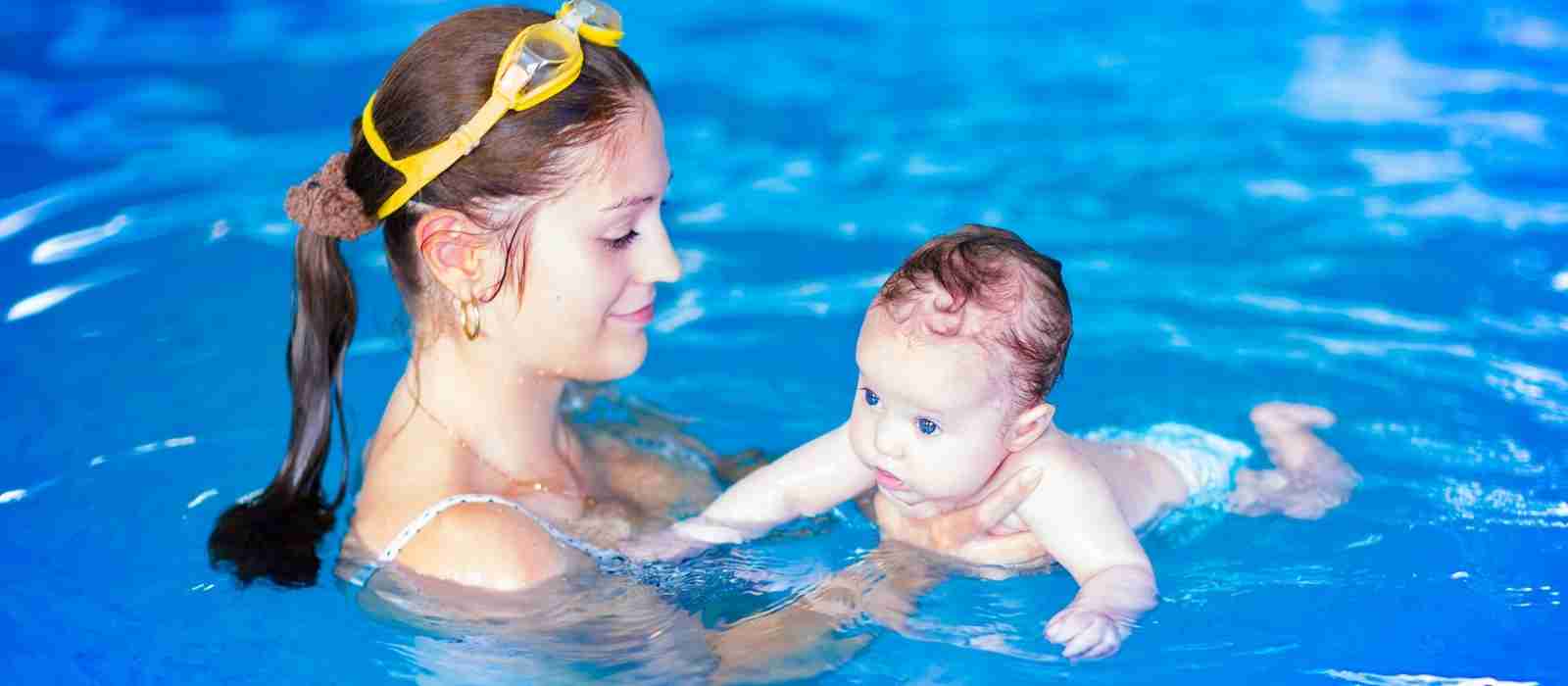Chlorine is a common disinfectant found in tap water, pools, and hot tubs. Babies are especially susceptible to the effects of chlorine and can develop a rash known as diaper rash.
Can chlorine cause diaper rash? The answer is yes. Chlorine exposure can cause irritation and lead to a painful diaper rash.
As parents, we want to find out chlorine levels when we will be able to begin introducing our baby to water-based and swimming pool activities.
We are aware that water safety and swimming lessons are extremely important and are often recommended for infants at the young age of six months.
But, can our little baby splash when they’re struggling with diaper rashes? Are the chlorine chemicals going to hurt your child and are safe for wounds?
It is usually safe for babies however, some people feel it causes diaper rashes. However, it contains some byproducts that could irritate, so when your little one is extremely sensitive skin or has severe diaper rashes, then you’ll require special precautions or even avoid swimming in the pool altogether.
Affiliate Disclaimer: As an Affiliate, we earn from qualifying purchases.
Can chlorine irritate diaper rash?
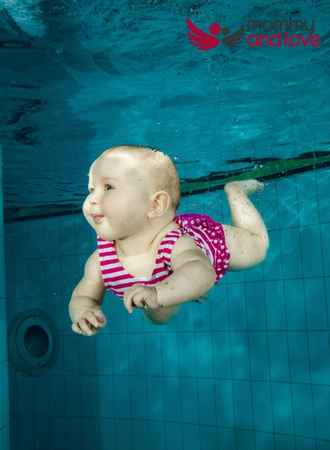
Chlorine can cause all skin problems and diaper rash, as well as other skin conditions, worse.
If your little one dry or becomes itchy, inflamed, or red due to the chlorine, diaper rash could get worse and trigger unneeded pain and delay in healing.
But, many parents on online forums have reported that their children aren’t adversely affected by chlorine. Others have said that exposure to chlorine has affected their child’s diaper rash because it dries, which is typically wet and inflamed because of the condition.
The best way to go is to follow your instincts and decide whether or not you’d like to expose your baby to pool water.
If your child’s diaper rash doesn’t seem to be unpleasant and you’re at ease in the water, you can go for it! If your child’s diaper rash appears more severe than normal, it’s best to avoid chlorinated water for a while and allow your baby to recover.
Is chlorine bad for a baby’s skin?
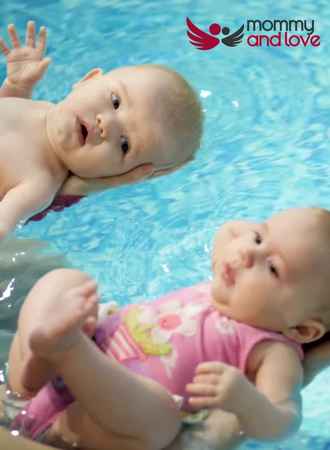
Chloramine is a byproduct of chlorine, which is used to maintain pools safe and clean.
This byproduct, while widely regarded as benign, is what causes discomfort when swimming in a pool as chloramine accumulates on the water’s surface. These byproducts, when paired with a pool’s pH levels, are likely to have an effect on the skin of your little one, albeit a minor one.
Babies’ skin is more sensitive. This means that the chemicals are more likely to irritate, as chlorine has been shown to have a greater impact on persons with sensitive skin.
Although your infant may react to chlorine, this does not imply that chlorine is harmful.
Infant swimming in chlorinated pools is healthy for babies and their skin if they are cleaned, maintained, and chemically balanced to promote integrity and overall health.
What causes chlorine sensitivity?

Chlorine rash is a kind of contact dermatitis caused by an irritant.
Chlorine is a necessary addition for keeping swimming water clean and free of microorganisms.
Without chlorine to function as a sanitizer, the water in your chlorinated pool or hot tub would quickly become filthy.
Algae, bacteria, and viruses could proliferate uncontrollably.
Chlorine depletes natural oil, known as sebum. That’s why, even if you don’t get a chlorine rash, your skin feels tight and dry after infant swimming.
Does chlorine cause diaper rashes?
Yes. Itchy, red or hives are examples of chlorine reactions (itchy bumps) which is a diaper rash.
This is not sensitivity, but rather “irritant dermatitis” (similar to a chemical burn) produced by hypersensitivity to this naturally occurring irritant.
Chlorine is also a skin irritant and can aggravate pre-existing dermatitis.
What causes your baby’s diaper rash all of a sudden?

Because feces are more irritating than urine, your infant may be more prone to chlorine rash if he or she has frequent bowel movements or diarrhea.
Rubbing or chafing chlorine rash can be caused by tight-fitting diapers or clothes that rub against the skin. Irritation caused by a new product.
Normally, the itching and red bumps go away after a few hours.
What does it look like to have a chlorine allergy?

When we observe rashes or other forms of skin irritation in our baby, we often assume they are allergic to something.
Allergies to chlorine, however, do not exist, according to the American College of Allergy, Asthma, and Immunology. Individuals can be sensitive to chlorine or have a reaction to it, but they cannot be allergic to it.
While knowing their baby does not have an allergy after a few hours may put some parents at ease. What does this indicate for parents who have a baby who has a sensitivity to something?
A reaction to chlorine, like many allergies or sensitivities, will be fine and visible on our child’s skin.
Chlorine can aggravate respiratory disorders such as asthma and existing allergies, therefore reactions in the respiratory system are possible.
Rashes, hives, or redness are symptoms of sensitivity. Similarly, it might become dry and scaley, as well as irritated and irritating.
Coughing, wheezing, chest tightness, difficulty breathing, sneezing, runny nose or congestion may occur if your newborn or toddler has asthma or allergy-based rhinitis.
This is a list of some of the possible manifestations of sensitivity or reaction. As a parent, if you notice any of these symptoms, please contact your child’s pediatrician or an allergist to further discuss the symptoms and treatments based on your child’s specific needs and health.
How can I keep my baby’s skin safe from chlorine?
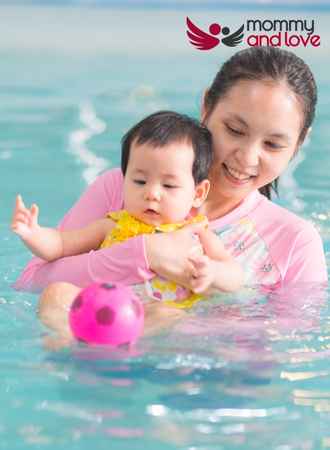
When it comes to protecting your little one, we can take precautions before they are exposed to chlorine to help retain their integrity.
Make sure that everyone in your family takes a shower before going into the site of the swimming pool.
The water will form a natural barrier, preventing the chlorine from being absorbed as thoroughly.
The water will also rinse away any sweat that may react with chlorine and produce the same unpleasant result observed in swimming chlorinated pools.
Managing diaper rash in a chlorine pool

We all know that water safety and swim lessons are critical, and they are frequently recommended for babies as early as six months.
If your baby has a diaper rash but is still able to dip, there are a few precautions you should take to safeguard your infant and keep the diaper rash from worsening.
To begin, apply an ointment or lotion to the itchy rash to protect it and to establish a barrier between the skin of your little one and the water.
Our favorite diaper rash treatment is
Boudreaux’s Butt Paste Maximum Strength Diaper Rash Ointment
- 40% Zinc Oxide
- Fast working
- Seals out wetness
- Free from dyes, preservatives, parabens and talc
- Suitable from birth
Next, make sure their swim diaper and swimsuit (if they’re wearing one with their diaper) fit correctly and aren’t aggravating their swelling diaper rash.
If your infant suffers regular, severe diaper rash, an alternative to the typical swim diaper is a neoprene swimsuit paired with a cotton diaper or wrap.
Neoprene is a soft and gentle material that will be mild and will most likely not aggravate their rash. If you acquire a suit like this one, you should be able to keep chlorinated water out of your baby’s private areas as well. Unfortunately, sizing on them does not begin until the toddler age.
Finally, once your baby is out of the water, be sure to wash them off and reapply any ointments and lotion that were used to heal and treat their swelling diaper rash.
If you smell chlorine and your gut sense tells you to stay away from the pool with your baby due to a diaper rash, do so! Allow them to heal and let it air out so they can get better as soon as possible!
Is it necessary to wipe the chlorine off the baby?
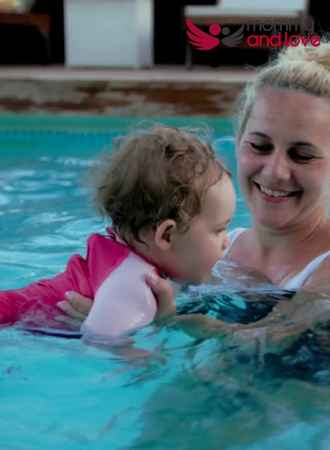
In addition to the precautions we should take before swimming, one of the most effective ways for us to protect our baby’s skin from the effects of chlorine in the pool is to take care.
This includes not only washing off after swimming or showering but also using a babies friendly body wash and shampoo to remove chlorine.
To prevent dry skin after swimming and chlorine contact, we need also to apply a moisturizing lotion.
Making sure you’ve eliminated the chlorine and reapplied a moisturizing layer will keep the chlorine from hurting and will aid in the healing of their diaper rash while also allowing them to enjoy the pool!
When should you contact your healthcare provider?
If your baby has a rash, you should consult your doctor if:
- You’re not sure if chlorine caused the rash.
- Your baby has severe hives or hives that are not responding to treatment. Any severe allergic response necessitates immediate medical attention.
- Your baby’s rash isn’t improving with home treatment. We recommend trying natural treatments to help your little one, like using Egg white for treating nappy rash and perhaps giving your baby a cornstarch bath to ease rash symptoms.
- The rash is spreading, worsening, or appears to be serious.
Conclusion
Chlorine can cause a variety of unpleasant skin reactions, including diaper rash.
It is important to be proactive in protecting your child by showering before entering the pool and using appropriate ointments and swimwear.
If you do notice a chlorine rash or itching blisters in your baby or toddlers, take steps to immediately cleanse and moisturize your child’s skin.
If symptoms persist or worsen, consult with your healthcare provider.

